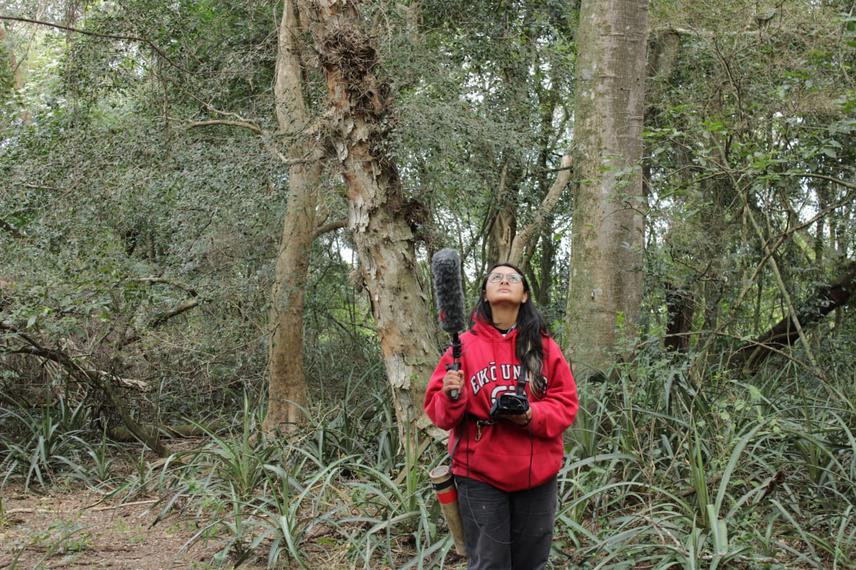Vanessa Bustamante
Predation affects the community structure of organisms. Primates have evolved strategies to cope with the risk of predation, such as alarm vocalisations. These vocalisations are emitted both in a social context and in the presence of a predator.

Project coordinator, Vanessa Bustamente. ©Vanessa Bustamente.
The methodology includes breeding experiments and real models. Real models of two predators sighted in the Chaco area will be shown. Puma and Tayra. We will collect data on the behavioural and acoustic response of primates to their presence. We will investigate howler monkey barks as possible alarm vocalisations, describe their acoustic structure, analyse their functionality and their anti-predator mechanisms. We are also conducting tests with parentage analysis, to clarify the kinship of the emitting individual with the proximate individual.
My work is initially based on the description of a type of vocalisation of the black-and-gold caraya monkey. This is the alarm vocalization, known as barking. This call is characteristic in stressful situations, whether intra-group events or in the presence of a potential predator. Alarm vocalisations are not well described in this species, neither their acoustic structure nor the behaviour accompanying this vocalisation. This is one of the main reasons why I took the initiative to carry out this work, due to the need to understand howler monkeys' defence in the field and to confirm the effectiveness of their vocalisations, used as anti-predator strategies.
At the same time, we hope to demonstrate the importance of the natural presence of howler monkeys and predators in the humid Chaco. Also, the most important work I am doing is the dissemination of Argentina's primates and conservation plans, with the help of different people in many parts of the country. We are carrying out two outreach and conservation projects with Caraya and Caí de las yungas, Jujuy and Salta.
I will carry out environmental education activities with local people, first year students of related careers and members of a recently created group SEPRIMA, to promote the importance of primate survival in threatened areas. We will provide both physical and digital educational pieces, including videos, educational workshops with all members of the family and awareness talks. Our aim is to promote conservation and environmental awareness to many corners of civil society and especially local populations, share it with populations close to the primates and take it to high impact research and outreach journals. This work will be sustained over time until beyond the achievement of the objectives.